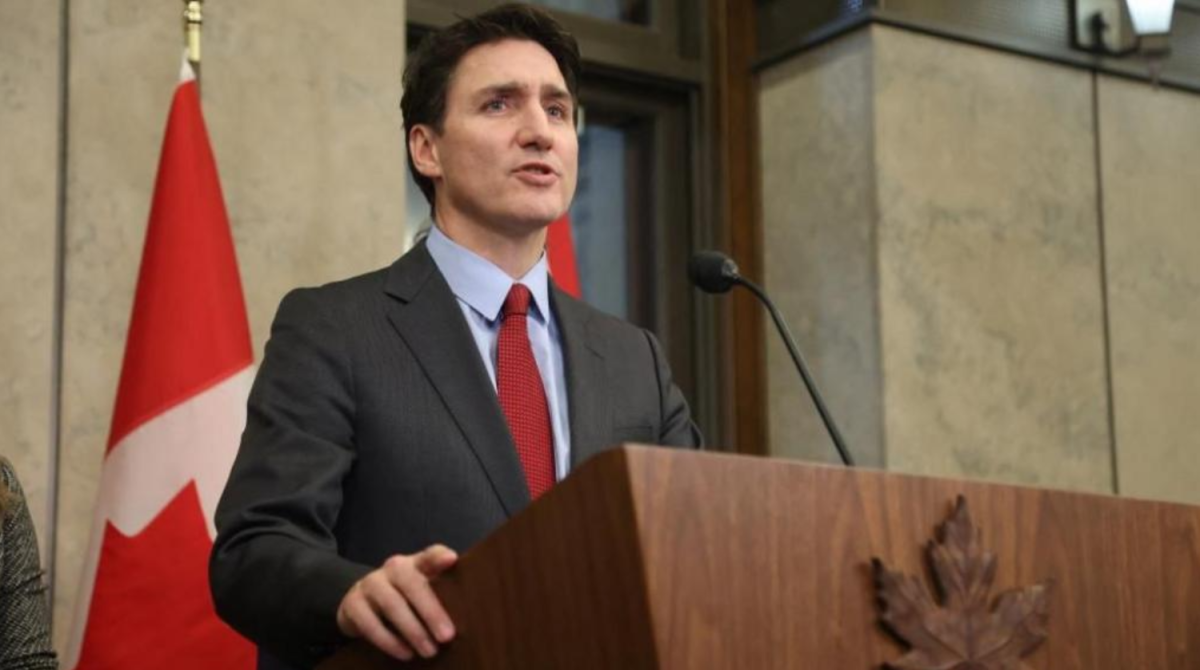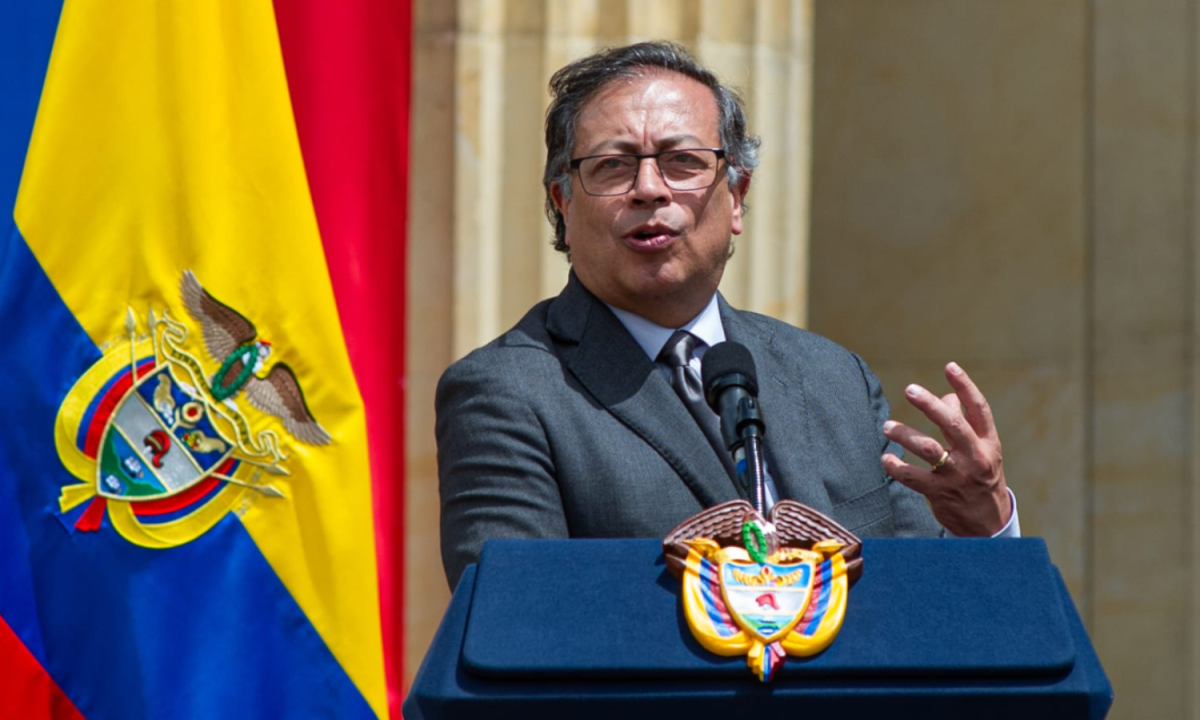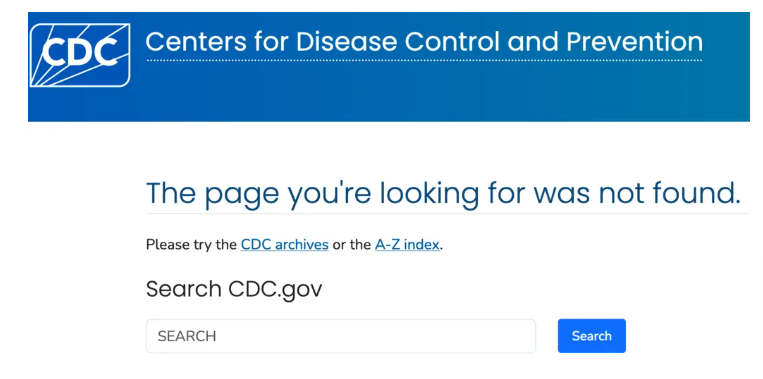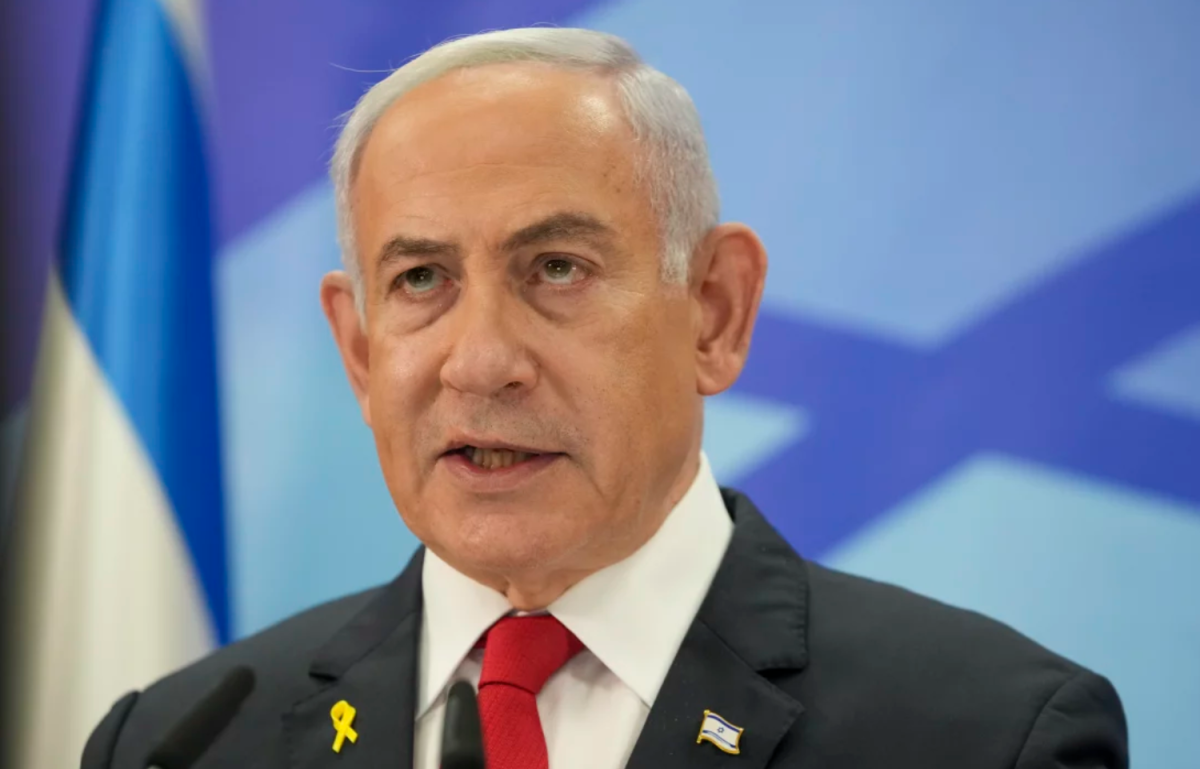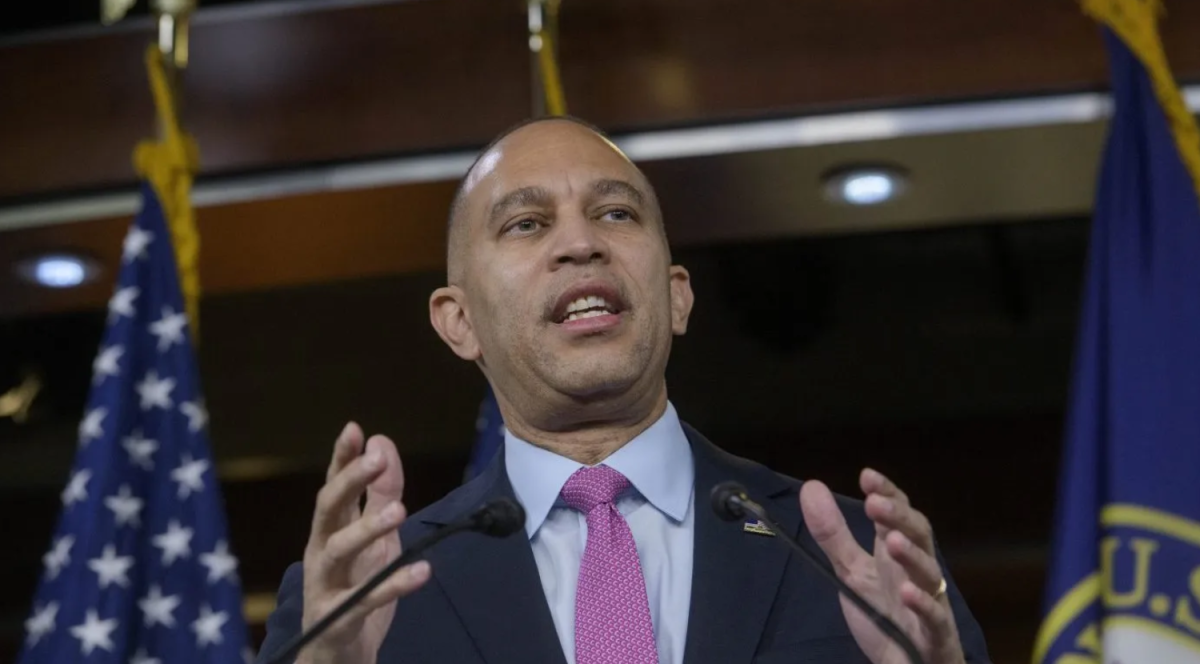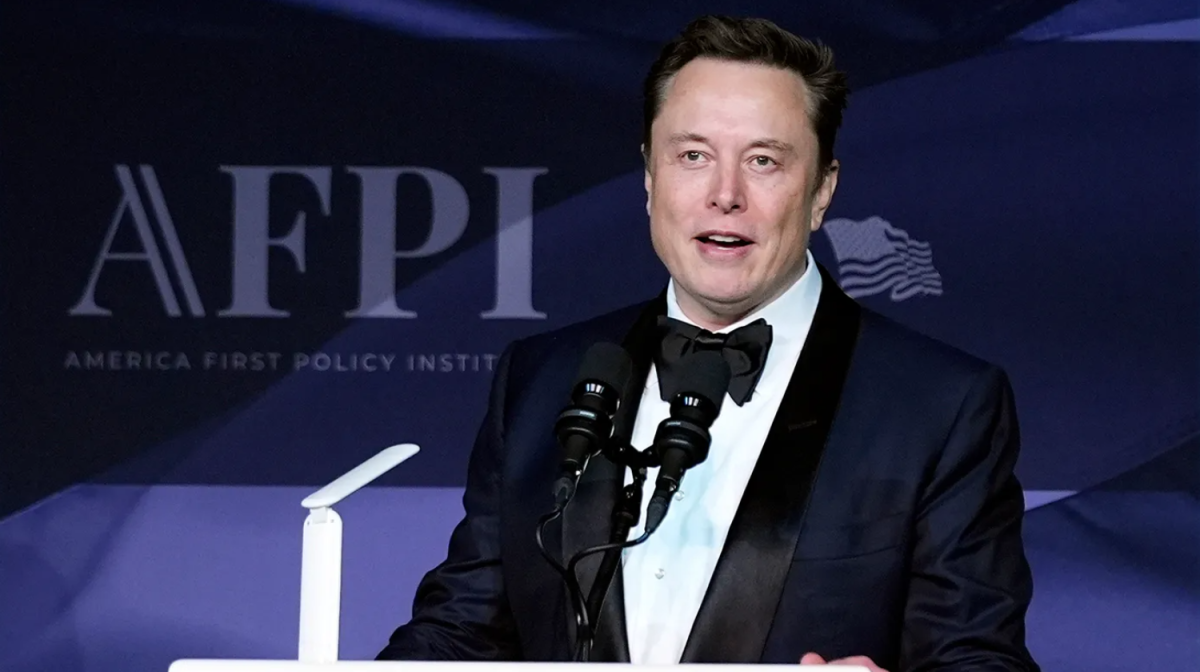-
Posts
9,982 -
Joined
-
Last visited
Content Type
Events
Forums
Downloads
Quizzes
Gallery
Blogs
Everything posted by Social Media
-
As tensions between Canada and the United States continue to rise over newly imposed tariffs, Prime Minister Justin Trudeau is urging citizens to support domestic industries. Finance Minister Dominic LeBlanc has acknowledged that while it is unlikely Canada can prevent the implementation of Trump’s latest tariffs set to take effect on Tuesday, there may be a chance for renegotiation in March. LeBlanc, speaking to Canadian TV network CTV, shared insights from discussions with U.S. officials, stating, "My conversations with (U.S. Commerce Secretary nominee) Howard Lutnick and others in the administration tell me that perhaps in March there’s a window again." However, he also admitted the situation remains highly uncertain. "But most of this is so unpredictable," he added. Canada and the U.S. have long been close allies, with a free trade agreement in place since 1994. Yet, trade relations have been fraught with tension, particularly during Trump’s previous term in office when he imposed a 10% tariff on Canadian aluminum and a 25% tariff on Canadian steel, citing national security concerns. Ottawa responded with its own tariffs targeting politically significant American goods, such as Florida orange juice and whiskey from Kentucky and Tennessee, the home of then-Senate Leader Mitch McConnell. Eventually, both nations lifted the tariffs a year later. Under former President Joe Biden, trade tensions cooled slightly, though disputes persisted. His administration increased tariffs on Canadian softwood lumber, raising them from 8.05% to 14.54%. Now, as the U.S. prepares to implement a sweeping 25% tariff on Canadian and Mexican goods, along with a 10% tariff on Chinese imports, Canada is retaliating. Starting Tuesday, the Canadian government will impose 25% tariffs on $30 billion worth of American goods, maintaining them until the U.S. withdraws its own measures. The list of affected goods includes live poultry, smoked meats, sausages, dairy products like milk, butter, and cheese, as well as various fruits, vegetables, coffee, wine, pasta, and even chocolate. Trudeau is rallying national unity, warning of the economic hardship that could follow. With roughly 75% of Canadian exports going to the U.S., the impact of these tariffs could be severe, particularly in the auto manufacturing sector. Economists predict that if the tariffs persist for five to six months, Canada could face a recession, leading to widespread job losses. “Many among us will be affected by this, and we will have some hard times. I ask you to be there for each other,” Trudeau said in a national address on Saturday following Trump’s tariff announcement. “Now is the time to choose Canada,” he urged, encouraging citizens to buy Canadian-made products and vacation domestically instead of traveling abroad. Some Canadians have already embraced the call to action. Social media users are sharing guides on how to avoid purchasing American goods, while others are canceling U.S. travel plans. Provincial governments are also taking action, with several planning to remove American alcoholic beverages from store shelves starting Tuesday to bolster local businesses and send a strong message of unity. Globally, Trump’s tariff decisions have sparked widespread reactions. Mexican President Claudia Sheinbaum has directed her economy minister to impose retaliatory tariffs of 25% on U.S. goods. Meanwhile, China’s commerce ministry has announced plans to file a lawsuit with the World Trade Organization and implement countermeasures to protect its interests. In Europe, France’s industry minister Marc Ferracci stated, "It's clear we have to react" to proposed EU tariffs, while Italy’s finance minister Adolfo Urso stressed the need to avoid "triggering a devastating trade war." Despite international criticism, Trump remains firm in his stance, insisting that any economic pain caused by the tariffs is "worth the price." He has even reiterated his controversial suggestion that Canada should become the 51st state of the U.S. As tensions mount and economic repercussions loom, Trudeau’s call for national solidarity remains strong. The coming months will determine whether Canada and the U.S. can find common ground or if this trade dispute will escalate further, with lasting consequences for both economies. Based on a report by BBC 2025-02-03
-
The use of gender pronouns in federal email signatures is being phased out as part of the Trump administration’s broader effort to dismantle diversity, equity, and inclusion (DEI) initiatives. Newly obtained memos reveal that executive branch employees across multiple agencies have been directed to remove pronouns from their email communications in accordance with recent executive orders signed by President Trump following his inauguration as the 47th president. Agencies impacted by this directive include the Centers for Disease Control and Prevention (CDC), the Department of Transportation, and the Department of Energy. According to reports from ABC News, employees have been instructed to eliminate any mention of pronouns such as "he/him," "she/her," "they/them," or any variations thereof from official correspondence, grant applications, and other documents. A message to CDC employees made the directive clear: "Pronouns and any other information not permitted in the policy must be removed from CDC/ATSDR employee signatures by 5 p.m. ET on Friday." Similarly, the Department of Energy directed its employees to excise DEI-related language from federal communications, publications, and discourse. In an additional move, the federal Office of Personnel Management (OPM) issued a memo instructing agencies to review their email systems, including Outlook, and disable any features that prompt users for their pronouns. An OPM spokeswoman confirmed to The Post that Acting Director Charles Ezell had ordered department and agency heads to notify all employees of the new policy and ensure compliance by "no later than 12:00 p.m. EST on Friday, February 7." Agencies are also required to submit a detailed report outlining the measures taken in response to the directive. On his first day back in office, Trump signed an order calling for an end to what he described as “radical and wasteful government DEI programs.” The executive order tasked the OPM, the Office of Management and Budget (OMB), and the Justice Department with eliminating “illegal” diversity policies, programs, preferences, and activities. In a separate executive action, Trump targeted what he referred to as "gender ideology extremism," asserting that the federal government should adhere to "biological truth." “It is the policy of the United States to recognize two sexes, male and female,” the executive order declared. “These sexes are not changeable and are grounded in fundamental and incontrovertible reality.” The directive further required agencies to remove any internal or external statements, policies, regulations, forms, or communications that endorse gender ideology. "Agencies shall remove all statements, policies, regulations, forms, communications, or other internal and external messages that promote or otherwise inculcate gender ideology, and shall cease issuing such statements, policies, regulations, forms, communications or other messages. Agency forms that require an individual’s sex shall list male or female, and shall not request gender identity." The policy shift has also extended to official documentation. Last week, Secretary of State Marco Rubio announced the elimination of the "X" gender marker on U.S. passport applications, restricting gender identification to either male or female. The new executive orders were referenced in the internal memos distributed last Friday. In contrast to the administration’s stance, Vice President Kamala Harris has been vocal about her support for gender inclusivity. In 2022, she introduced herself at an LGBTQ roundtable by stating, “I am Kamala Harris, my pronouns are she and her, and I am a woman sitting at the table wearing a blue suit.” She also asked staffers for her 2024 campaign to select from nine gender-neutral options when applying for positions. Additionally, Harris’s past support for taxpayer-funded gender-affirming procedures for prisoners became a focal point in Republican attack ads. One particularly notable ad criticized her stance, stating, “Even the liberal media was shocked Kamala supports taxpayer-funded sex changes for prisoners and illegal aliens. Kamala’s for they/them. President Trump is for you.” Following Trump’s electoral victory, at least two prominent Democrats who had previously displayed pronouns in their social media profiles—former Transportation Secretary Pete Buttigieg and Representative Alexandria Ocasio-Cortez—have since removed them. Buttigieg, who is reportedly considering a Senate run in Michigan, was seen scrubbing his "he/him" designation as recently as Thursday. These latest moves reflect the administration’s broader push to eliminate DEI policies and reinforce a binary understanding of sex and gender within the federal government. As agencies rush to comply, the implications of these orders continue to generate debate across political and social spheres. Based on a report by NYP 2025-02-03
-
Colombian President Gustavo Petro has called on undocumented Colombians residing in the United States to return home, promising incentives for those who choose to do so. In a post on social platform X, Petro urged his compatriots to leave their jobs in the U.S. and return to Colombia as soon as possible. “I ask undocumented Colombians in the U.S. to immediately leave their jobs in that country and return to Colombia as soon as possible,” Petro wrote. “Wealth is produced only by working people.” To encourage returnees, Petro announced that the Colombian Department of Social Prosperity would provide loans to those who enroll in the program. “Let’s build social wealth in Colombia,” he added. The announcement came amid a tense diplomatic standoff between the U.S. and Colombia over immigration and trade policies. Petro initially declared that U.S. planes carrying deported Colombian migrants would not be permitted to land in the country. In response, President Trump threatened to impose a 25 percent tariff on Colombian imports and barred Colombian government officials and their families from traveling to the U.S. Petro retaliated by imposing a reciprocal 25 percent tariff on American goods. The dispute was temporarily resolved on Sunday night when White House press secretary Karoline Leavitt confirmed that an agreement had been reached. Under the deal, Colombia agreed to accept “all illegal aliens from Colombia returned from the United States, including on U.S. military aircraft, without limitation or delay.” Since then, flights have been arriving in Bogotá with deported Colombian migrants. Petro emphasized that these returnees were not criminals. “Our compatriots come from the United States free, dignified, without being handcuffed. We structure a productive, associative and cheap credit plan for migrants,” he stated. The diplomatic tensions also had immediate consequences for travel between the two countries. Earlier this week, the U.S. Embassy in Bogotá suspended visa appointments for Colombians seeking entry to the United States, citing the Colombian government’s prior refusal to accept repatriation flights. As the situation continues to unfold, Petro’s appeal to undocumented Colombians underscores his administration’s broader push to strengthen Colombia’s economy by encouraging expatriates to return and contribute to national development. Based on a report by The Hill 2025-02-03
-
The UK Prime Minister is poised for a clash with members of his own party over reports that China will be excluded from the strictest category of new national security legislation. While Russia and Iran are set to face the highest level of scrutiny, sources indicate that individuals working for the Chinese state within the UK will not be subject to the same stringent measures. If confirmed, this decision could intensify criticism that the government is being too lenient on Beijing, despite growing concerns over China's potential threat to British security. The move has already been condemned by the Conservative Party, which described it as “extraordinary and reckless.” At the heart of the controversy is the Foreign Influence Registration Scheme (Firs), an initiative originally developed under the previous Conservative government. This scheme is intended to track foreign agents operating in the UK, requiring them to disclose details such as who they work for, their assigned activities, and the timing of their arrangements. The scheme will be divided into two levels: a basic tier for political lobbying and an “enhanced” tier for individuals linked to states deemed as threats to national security. Those in the enhanced category will face stricter disclosure requirements. According to sources cited by *The i Paper*, Russia and Iran are expected to be placed in the enhanced category, whereas China will not be included. Shadow Foreign Secretary Priti Patel strongly criticized the government’s stance, stating, “This is an extraordinary and reckless decision by this Labour government to exempt China from the toughest security restrictions which exist to protect our country. China continues to threaten our interests and the safety and security of our country.” She further accused Prime Minister Keir Starmer of prioritizing economic considerations over national security, adding, “In a desperate rush to think China can solve the self-inflicted economic woes of his government, Starmer is putting Britain at risk.” Concerns over China’s classification in the Firs scheme have been ongoing. Last month, when the implementation of Firs was delayed, former Conservative Home Secretary Suella Braverman advocated for China’s inclusion in the enhanced category, echoing wider anxieties about Beijing’s activities in the UK. The UK’s relationship with China remains complex, as the government seeks to balance economic engagement with national security interests. Chancellor Rachel Reeves recently defended the need for “uncomfortable conversations” with China’s leadership, though she faced heavy criticism for visiting the country earlier this month while the UK economy faced serious challenges. Further scrutiny has been directed at Emma Reynolds, the newly appointed City Minister in the Treasury. Reynolds previously served as treasurer for the All-Party Parliamentary Group (APPG) on China and worked as Managing Director at banking trade group TheCityUK. During her tenure, she reportedly lobbied ministers to relax restrictions on Chinese business operations in the UK. Last month, *Bloomberg* reported that Reynolds had actively pushed for China to remain outside the enhanced tier of the Firs scheme. While official details of the security initiative have yet to be disclosed, business and diplomatic insiders have suggested that Beijing is unlikely to face the highest level of restrictions. The decision is expected to spark widespread opposition from MPs across the political spectrum, raising further questions about the government’s approach to balancing national security with economic interests. Based on a report by The Independent 2025-02-03
-
The British government has strongly condemned Russia’s threat to arrest The Sun’s defence editor, Jerome Starkey, calling it yet another example of the Kremlin’s desperate rhetoric. Downing Street has dismissed the move as an attempt by Vladimir Putin’s regime to silence fearless journalism that continues to expose the truth about Russia’s actions in Ukraine. A court in Russia’s Kursk region announced via Telegram that Starkey had been placed on an “international, interstate wanted list.” The regional court alleged that he had illegally crossed the border into Russia last year. The federal security service (FSB) had petitioned the court, accusing a British national of entering the country from Ukraine in August 2023 to produce a report. Reacting to the news, a spokesman for Prime Minister Sir Keir Starmer said, “It’s just another example of desperate rhetoric from Putin’s government. Of course, we condemn it.” He went on to praise the work of British journalists, emphasizing their role in exposing injustices worldwide. “British journalists shine a light into some of the darkest corners of the world, uncovering atrocities. Jerome Starkey’s award-winning reporting from inside Ukraine, exposing the details of Russia’s illegal war for millions of readers, is no different. If the Kremlin cannot withstand the British newspaper highlighting Ukraine’s brave defence of its freedom then, frankly, Putin should roll back his tanks, withdraw his forces and end the suffering of Ukrainian and Russian people. We will always stand with Ukraine, we will always stand by our free and fearless press.” Defence Secretary John Healey also responded on X, formerly Twitter, saying the arrest threat was “another example of Putin’s weakness, and a credit to Jerome Starkey’s fearless reporting — and The Sun’s strong stance against Russian aggression.” Russia has previously banned numerous British journalists, including reporters from The Times, as well as senior politicians, from entering the country. The crackdown on foreign media has intensified as Moscow seeks to control the narrative surrounding its invasion of Ukraine. In December, Dmitry Medvedev, an ally of Putin and deputy chairman of Russia’s security council, issued direct threats against British media. He claimed editors at The Times were “legitimate military targets” following an editorial discussing the assassination of a Russian general. Medvedev went further, calling The Times’ management team “lousy jackals” and warning them to “be careful,” ominously adding, “After all, a lot of things happen in London.” The latest move against Starkey underscores the Kremlin’s growing intolerance of critical reporting, but British officials remain resolute in their support for journalists uncovering the realities of Russia’s war in Ukraine. Based on a report by The Times 2025-02-03
- 1 reply
-
- 1
-

-
China is developing an enormous military facility in western Beijing, which is set to become the largest command center in the world—surpassing the Pentagon by at least ten times in size, according to a report by the *Financial Times*. Covering approximately 1,500 acres, the site features deep excavations that military experts believe will accommodate fortified bunkers designed to protect high-ranking Chinese military officials in the event of a major conflict, including nuclear warfare. The *Financial Times* noted that this significant project, which began large-scale construction in mid-2024, is being informally referred to by some intelligence analysts as "Beijing Military City." A former senior U.S. intelligence official told the *Financial Times* that "Chinese leaders may judge that the new facility will enable greater security against U.S. 'bunker buster' munitions, and even against nuclear weapons." This suggests that Beijing is prioritizing advanced defensive capabilities to withstand potential high-impact attacks. The construction of this vast and heavily fortified site underscores China's ongoing efforts to enhance its military infrastructure and strategic defense measures amid rising geopolitical tensions. Based on a report by AXIOS 2025-02-03
-
Sir Keir Starmer and his chancellor, Rachel Reeves, entered office with a clear promise: to increase prosperity and put more money into people’s pockets. However, months into their tenure, tangible evidence of economic improvement remains elusive. When The Times interviewed Reeves, the key question was straightforward—will people feel better off by the end of the year? Yet, it was the one query she refused to answer directly. Despite being pressed repeatedly, Reeves sidestepped the issue, eventually stating, “This is a whole parliament project to make people better off.” Her reluctance to provide a definitive answer underscores a major challenge for Labour. The party has positioned itself as a champion of economic growth and wealth creation, yet current forecasts suggest a different reality. The Office for Budget Responsibility projects that Reeves’s tax-raising budget will likely slow growth throughout this parliamentary term. Real household disposable income, the key measure of how much money people have after accounting for taxes and inflation, is expected to rise by a mere 0.5 percent annually during this period. While stronger-than-expected wage growth has offered a glimmer of hope, economists warn that this could prompt the Bank of England to maintain higher interest rates for longer, potentially limiting financial relief for households. Reeves’s hesitation in addressing whether people will feel better off this year stems from factors beyond her control. Interest rate decisions by the Bank of England, as well as global economic shifts—such as the potential for tariffs on UK imports if Donald Trump returns to the U.S. presidency—are far more likely to dictate short-term economic conditions than any immediate policy changes by Labour. On Wednesday, Reeves unveiled a series of initiatives aimed at boosting growth without placing additional strain on government finances. These include plans to expand Heathrow Airport and reform planning regulations. However, the impact of these measures will not be felt for years, perhaps even decades. Labour remains cautious about what it perceives as a critical Conservative error—making bold promises and failing to deliver. Starmer’s chief of staff, Morgan McSweeney, has argued that this approach damaged trust in politics, a mistake Labour is determined to avoid. Consequently, Starmer and Reeves have spent much of their early tenure emphasizing the dire state of the public finances. Their message has been clear: Britain is broken, and while Labour intends to fix it, the process will take time. The party’s gamble is that by the next general election, voters will feel an improvement in their financial circumstances. However, some within the cabinet are questioning this strategy. They argue that waiting too long to deliver tangible economic benefits risks being too little, too late. As one insider put it, attempting to “fatten the pig on market day” may not be enough. With Labour’s approval ratings slipping in the polls, they may have a point. Based on a report by The Times 2025-02-03
-
Labour is rolling back key border laws aimed at preventing illegal migrants from gaining UK citizenship and enforcing scientific age assessments on asylum seekers. The Home Office has announced the repeal of Tory-introduced rules that barred small boat arrivals from ever becoming citizens and revoked powers that allowed ministers to classify asylum seekers as adults if they refused scientific age checks. Chris Philp, the shadow home secretary, condemned the decision as a “total capitulation to people smugglers” and warned it would “make the UK the soft touch of Europe.” However, government sources defended the move, arguing that the previous Tory government had failed to implement these measures effectively. They pointed out that the powers had never actually been used since they were introduced. Last week, Home Office ministers unveiled the Border Security, Asylum and Immigration Bill, which they claim will strengthen efforts to tackle the small boats crisis. However, the legislation’s details reveal that large sections of the Illegal Migration Act, passed in 2023, will be repealed. That act had previously made almost anyone entering the UK illegally ineligible for settled status and, ultimately, citizenship. Additionally, it allowed officials to treat asylum seekers as adults if they refused scientific age assessments. Philp expressed concerns that reversing these measures would lead to “dangerous young men being placed with teenage girls” and insisted that “Starmer is a weak Prime Minister. He is weak on borders and is weak when it comes to protecting our borders, our children, and our people. I will fight tooth and nail against this craven capitulation to illegal immigrants and people smugglers when the Bill comes to Parliament.” A significant concern among critics is that many asylum seekers falsely claim to be minors to increase their chances of being granted refugee status. Official data from the first half of last year showed that more than 1,300 migrants were caught pretending to be underage after being flagged by authorities. Government figures also indicate that three-quarters of unaccompanied minors were granted asylum in the year leading up to last September, compared to only half of adult applicants. Those classified as minors receive school placements and are housed by local councils rather than placed in migrant hotels. Currently, UK officials can only classify someone claiming to be a child as an adult if their appearance “very strongly suggests they are significantly over 18 years of age.” In contrast, other European nations, such as France and Germany, routinely use medical testing, including X-rays of hand and wrist bones, molar teeth scans, and MRI scans of knee and collar bones, to determine age more accurately. The powers to conduct such assessments were approved in the 2022 Nationality and Borders Act, but they have yet to be enforced. The 2023 Illegal Migration Act went a step further, allowing ministers to mandate that asylum seekers refusing scientific age tests be treated as adults. Labour has now decided to retain the weaker provisions from the 2022 law while reserving the right to introduce stricter measures in the future if necessary. A government source pushed back against accusations that Labour is relaxing border security, insisting that “Labour will continue to use age assessment and won’t hesitate to go further in legislation if needed.” They also argued that the ban on citizenship for illegal arrivals had left asylum seekers in limbo, preventing their cases from being processed. Labour has pledged to clear the backlog of 177,000 asylum cases, which has resulted in 35,000 migrants being housed in hotels at an annual cost of £3 billion. Suella Braverman, the former home secretary who championed the Illegal Migration Act, strongly criticized Labour’s new approach, accusing the government of “decriminalising illegal migration.” She argued that the new Border Security Bill “removes all the security and provisions we had put into place to keep the UK safe and is a disgrace.” “To put it bluntly, it is an insult to the British people. It shamefully opens up our borders and disgracefully allows illegal immigrants to become citizens,” Braverman said. “If you enter the UK illegally, you should be detained, deported, and banned from ever returning.” Reform MP Rupert Lowe also condemned the changes, describing the asylum system as being “as soft as a boiled maggot.” He called for a stricter stance, stating, “Zero tolerance is required. It is abundantly clear that thousands of males are fooling the incompetent Home Office through lies over their age, sexuality, religion, and more. It is a scam. The word of the migrant is often taken as the truth, with ‘the benefit of the doubt’ regularly implemented as official policy.” Based on a report by Daily Telegraph 2025-02-03
-
The Trump administration has removed references to LGBT health and information on certain vaccines from federal websites, including those of major public health agencies. This move aligns with a memo issued on Wednesday, directing agencies to halt all "programs that use taxpayer money to promote gender ideology" and to take down related online content by Friday afternoon. President Trump has previously issued executive orders banning diversity, equity, and inclusion (DEI) initiatives in the government and formally recognizing only two sexes—male and female. When questioned by reporters on Friday about whether federal websites would be altered to eliminate diversity-related content, Trump stated, "If they want to scrub the websites, that's OK with me." DEI programs are designed to foster participation from people of diverse backgrounds in workplaces and institutions. Supporters argue that such initiatives help address historical and systemic discrimination, particularly among underrepresented groups such as racial minorities and the LGBTQ+ community. However, critics claim these programs can create divisions and result in reverse discrimination. By Saturday, key public health agencies had seemingly erased webpages containing discussions on gender, sexually transmitted diseases, and LGBT health. Several pages on the Centers for Disease Control and Prevention (CDC) website now display error messages. A yellow banner on the CDC’s homepage informs visitors that the website is "being modified to comply with President Trump's Executive Orders." Among the missing resources is the National Youth Risk Behavior Survey (YRBS), a long-standing study examining topics like nutrition, mental health, physical activity, and sexual activity among high school students. The tool used to access this data is no longer available, and its landing pages have vanished. An archived version of the website, accessible via the WayBack Machine, reveals that the pages were still live as recently as mid-January. One portion of the study previously explored whether students "felt that they were ever treated badly or unfairly because they are or people think they are lesbian, gay, bisexual, transgender, or questioning." Another webpage titled "Supporting LGBTQ+ Youth" was also removed by Saturday morning, though archived versions remain accessible. A section dedicated to "Health Disparities Among LGBTQ Youth" similarly disappeared. The archived version of this page highlighted how "stigma, discrimination, and other factors put them at increased risk for negative health and life outcomes." These removals have raised concerns among health advocates and researchers who rely on government data to inform public health strategies and policy decisions. The CDC serves as a primary repository for official government health data and research. The recent deletions signal a broader effort by the Trump administration to reshape the presentation of health information, particularly regarding LGBTQ+ and youth-related issues. The full extent of these changes remains unclear, but advocacy groups and researchers continue to monitor the situation closely. Based on a report by BBC 2025-02-03
-
Emily Damari, British-Israeli who was held hostage by Hamas for 15 months in Gaza, has revealed to Prime Minister Sir Keir Starmer that she was detained in a United Nations facility and denied medical treatment throughout her captivity. The 28-year-old was kidnapped from her home on October 7, 2023, by Hamas gunmen, who shot her in the hand and leg and killed her pet dog. During a phone call with her mother, Damari disclosed that she had been held for a period in facilities belonging to the United Nations Relief and Works Agency (UNRWA) but was never given access to medical care. She explained that the only medical aid provided to her was a single bottle of expired iodine, despite her severe injuries, including the loss of two fingers on her left hand and an unhealed wound in her leg. Following the conversation, her mother, Mandy Damari, took to X to share the harrowing details. "Hamas held Emily in UNRWA facilities and denied her access to medical treatment after shooting her twice. It's a miracle that she survived, and we need to get aid to remaining hostages now," she wrote. Rihards Kols MEP: UNRWA's complicity in Hamas' crimes is undeniable. Israeli hostages were held captive on its premises—funded in part by the EU budget. Along with colleagues, I urge @antonioguterres to shut down UNRWA. The UN must uphold its own values, not enable terrorism. In response to the allegations, UNRWA issued a statement to Sky News, expressing relief over the release of the hostages. "We at UNRWA are relieved that hostages have been released. We hope all others will be released too. It is also a relief that Ms. Damari has finally been reunited with her family," the agency said. Addressing the claims that hostages were held in their premises, the agency added, "Claims that hostages have been held in UNRWA premises, even if previously vacated, are very serious. We have repeatedly called for independent investigations into claims of misuse and disregard of UN premises by Palestinian armed groups, including Hamas." The revelation about Damari’s captivity comes as a new Israeli law goes into effect, banning UNRWA operations on Israeli land, including in East Jerusalem, and cutting off contact with Israeli authorities. Israel has long been critical of the agency, arguing that it perpetuates the Israeli-Palestinian conflict by conferring refugee status to the descendants of refugees—a classification not given to any other group of refugees worldwide. Additionally, Israeli authorities have accused UNRWA of fostering anti-Israel sentiment in its schools and of enabling Palestinian dependence on aid for decades. Furthermore, Israel has alleged that some UNRWA employees have been involved in acts of terror, including participating in the October 7 attacks, while hundreds more have ties to terrorist organizations. Based on a report by Sky News 2025-02-03 Related Topics: January 30 Deadline Approaches for UNRWA to cease Operations in Jerusalem UK Pledges Additional £13m to UNRWA Amid Controversy Over Alleged Terrorist Ties We did not know’: Hamas data center directly under UNRWA Gaza City HQ European Parliament Denounces UNRWA Role in Inciting Violence, Antisemitism UNRWA neutrality must be strengthened, independent review finds UNRWA textbooks were pivotal in radicalizing generations of Gazans — watchdog Victims of October 7 Attack Sue UNRWA for $1 Billion, Accusing It of Aiding Hamas
-
Donald Trump has sent a strong message to America’s enemies following precision military airstrikes on senior Islamic State (ISIS) operatives in Somalia. “We will find you, and we will kill you,” the former president declared in a statement released on social media. Trump announced that he had personally ordered the strikes against a senior ISIS attack planner and other terrorists under his command. “This morning I ordered precision military air strikes on the senior Isis attack planner and other terrorists he recruited and led in Somalia,” he stated. In his statement, Trump took aim at President Joe Biden and his administration, claiming that they had failed to act decisively in eliminating this particular threat. “Our military has targeted this Isis attack planner for years, but Biden and his cronies wouldn’t act quickly enough to get the job done. I did!” Trump closed his remarks with a final warning to terrorist organizations: “The message to Isis and all others who would attack Americans is that ‘we will find you and we will kill you!’” His words echoed a famous line from the 2008 action film *Taken*, in which Liam Neeson’s character delivers a similar warning to his enemies. Despite Trump's criticism of Biden, the recent strikes align with U.S. counterterrorism efforts under the current administration. In December, the U.S. launched airstrikes against ISIS targets in Syria, responding to concerns that the terror group might regain strength as the situation in the region remains unstable. Biden addressed these operations by reaffirming the U.S. commitment to preventing ISIS from regaining a foothold. “We’re clear-eyed about the fact that Isis will try to take advantage of any vacuum to re-establish its capabilities to create a safe haven,” Biden said. “We will not let that happen.” Those strikes, which involved B-52 bombers, F-15 fighter jets, and A-10 ground attack aircraft, successfully targeted ISIS leaders, operatives, and training camps, according to CNN. The U.S. military remains active in the fight against the group, ensuring that ISIS is unable to rebuild its networks or threaten global security. As Trump and Biden exchange words over their approaches to combating ISIS, the U.S. continues to employ precision military tactics to prevent the resurgence of terrorist organizations. Based on a report by Daily Telegraph 2025-02-03
-
If Britain is to avoid becoming a world leader in energy failure, urgent changes must be made. Norway’s government collapsed this week over flawed energy policies driven by extreme climate agendas, but it is not the first to fall victim to such mismanagement. Northern Ireland holds that distinction, having suffered political turmoil in 2017 after the botched rollout of the UK’s renewable heat scheme, which led to widespread abuse and ultimately brought down the power-sharing agreement between Sinn Féin and the DUP. However, Norway’s crisis could have even greater consequences for the UK. The populist, Eurosceptic Centre Party, alongside other right-wing factions, has taken issue with the fact that Norwegians are being forced to pay higher prices for their own energy due to international demand for their hydropower. They are particularly outraged by EU directives that threaten Norway’s ability to reserve energy for domestic use or shield itself from an energy crisis. Their frustration is exacerbated by what they see as reckless decisions made by neighboring countries—especially Germany—which have only worsened the situation. With the Labour Party now left in charge without a functioning majority, Norway is heading for a general election no later than September, and current polling suggests a nationalist populist coalition is likely to take power. The UK faces a similarly precarious situation. Ed Miliband, Secretary of State for Energy Security and Net Zero, has pledged to decarbonize Britain’s power grid by 2030. Given the slow pace of nuclear power development, this will almost entirely rely on renewable sources, particularly offshore wind, along with a massive expansion of pylons to transport electricity. At the same time, the government has maintained a ban on domestic fracking, extended restrictions to new North Sea oil and gas projects, and removed legal protections for previously approved ventures like Rosebank. These decisions not only undermine the UK’s energy security—since wind power is inherently intermittent—but also increase reliance on energy imports. At present, the only feasible solution to balance the grid during periods of low wind is to keep gas turbines on standby, ready to be fired up at enormous expense using imported gas, much of which comes from Norway via pipeline. While the electricity interconnector (NSL) between the UK and Norway has the capacity to power 1.4 million homes, it would be entirely useless if Norway decided to limit exports during critical low-wind periods. At present, it is electricity, rather than gas, that is most at risk of being withheld. However, rising populism in energy policy is not about technology—it is about price. Norway’s vast North Sea wealth follows the same economic rules as its power supply: as global demand rises, prices increase. If Norway’s energy nationalism escalates, the UK’s next best option is liquefied natural gas (LNG) shipments from the United States, which proved vital during the 2022 crisis. Yet, Donald Trump’s policy agenda prioritizes cheap fracked gas for American manufacturing over British energy needs, and this tension will only grow if Britain continues to emulate Germany’s failed energy policies under Angela Merkel. Other energy alternatives are even less reliable, and the risk extends beyond Norway and the US. If these trends continue, France and Belgium could also impose restrictions on energy exports, further isolating the UK. The next five years could see a catastrophic convergence of problems: stalled progress on renewables and nuclear power, capital and talent fleeing Aberdeen, mounting costs to keep aging gas plants operational, and skyrocketing import prices—assuming suppliers do not ban exports altogether. The warning signs are unmistakable, yet the UK’s response so far has been dangerously complacent. If Britain is to avoid a future where people sit in the dark, too poor to heat their homes, the government must act decisively and abandon its current energy trajectory before it is too late. Based on a report by Daily Telegraph 2025-02-03
-
Judge Alison Raeside, who placed ten-year-old Sara Sharif back in the custody of her abusive father, has a history of judicial failings, it has now emerged. The press successfully challenged a gag order that had previously prevented her identity from being disclosed. The order, imposed by Mr. Justice Williams, sought to protect her and two other judges from what was described as a potential "social media pile-on." Sara was returned to her father, Urfan Sharif, despite multiple allegations of domestic violence, including threats with a knife and habitual physical abuse of his children. The decision to grant him custody was based on a report by an inexperienced social worker, which described Sharif as not posing a threat to his daughter. Judge Raeside endorsed the report, calling it a "very thorough" and "very good piece of work." In December, Sharif and his wife, Beinash Batool, were sentenced to life in prison for the brutal murder of Sara, who had endured years of horrific abuse before her death on August 10, 2023. An autopsy revealed she had suffered more than 71 injuries, including fractures, burns, and bite marks. Evidence suggested she had been repeatedly restrained with packing tape and beaten with a metal pole and a cricket bat. Judge Raeside’s controversial decision to grant Sharif shared custody in 2019 came despite her prior involvement in cases revealing a documented history of domestic violence. In hearings between 2013 and 2015, extensive evidence of Sharif’s abusive behavior was presented. Despite this, social services concluded that Sharif and Batool were capable of caring for Sara without "physically chastising" her, leading to Judge Raeside’s ruling in their favor. The revelation of Judge Raeside’s identity has also brought renewed scrutiny to her judicial record. In 2018, a High Court judge, Mr. Justice Newton, criticized her for conducting a "fundamentally flawed hearing" that lacked transparency. She had engaged in undisclosed discussions with a youth charity about a child’s welfare, leading to allegations of procedural irregularity. Newton noted that her actions raised serious concerns about fairness and transparency, allowing the mother involved in the case to appeal the residency decision. Sara’s case dates back to 2010 when Surrey County Council first raised concerns about her family’s history of neglect. Social services intervened multiple times over the years, placing Sara and her siblings in foster care intermittently. In 2014, one of her siblings was found with an adult bite mark, leading to their removal from the home. However, in 2015, Judge Raeside returned Sara to her mother’s sole care, despite ongoing concerns about her father’s influence. In a now-deleted episode of the *Women Who Work* podcast, Judge Raeside expressed frustration over the lack of feedback in her role. "You don’t get any feedback as a judge," she said. "I’ve never had an appraisal. Imagine that. No one tells you if you are any good." She also stated that her greatest satisfaction came from learning that children from her cases were "doing well and happy" years later. Judge Raeside has had other challenges in her career, including being the target of an online harassment campaign. In 2019, Nyron Warmington was jailed for sending her threatening messages over a nine-month period after she barred him from contacting his daughters. Warmington referred to her home address and children in his posts and was given a five-year restraining order. The two other judges involved in Sara’s hearings, Sally Williams and Peter Nathan, have also faced scrutiny. Judge Nathan, who retired in 2019, placed Sara in foster care on an emergency basis before Judge Raeside later returned her to her father. Judge Williams previously ruled against keeping a child in care based on faulty laboratory evidence, later acknowledging that had the mistake not been discovered, the child would have been wrongly placed for adoption. Sir Geoffrey Vos of the Court of Appeal recently criticized the initial decision to grant judicial anonymity in the Sara Sharif case, stating that even judges handling terrorism and organized crime trials are not given such protections. He ruled that Mr. Justice Williams had "undoubtedly behaved unfairly" by attempting to shield the judges from public scrutiny. The lifting of the gag order now allows for full accountability regarding the decisions that ultimately led to Sara’s tragic fate. As public concern over the handling of her case continues to grow, calls for greater transparency and oversight in family court proceedings are mounting. Based on a report by Daily Telegraph 2025-02-03
-
A NASA astronaut who has been stranded aboard the International Space Station since last June admitted she is struggling to remember the sensation of basic human activities like walking and lying down. Suni Williams made the comments during a call with students at Needham High School in Massachusetts on Monday. As she and fellow astronaut Butch Wilmore continued their prolonged orbit around Earth, Williams explained the strange experience of living in a zero-gravity environment for such an extended period. “I’ve been up here long enough right now I’ve been trying to remember what it’s like to walk,” the Massachusetts native told the students from her alma mater. “I haven’t walked. I haven’t sat down. I haven’t laid down. You don’t have to. You can just close your eyes and float where you are right here,” she added, describing the unusual reality of her weightless surroundings. The 59-year-old astronaut and Wilmore, 62, were originally supposed to stay in space for only eight days. However, their mission has now stretched to over eight months due to ongoing technical issues that have prevented their return. “It was a little bit of a shock actually,” Williams admitted during her conversation with the students. “We knew that it would be probably a month or so, honestly. But the extended stay was just a little bit different.” Williams also shared how the prolonged mission has impacted her personal life, particularly her relationship with her family. “My mother’s getting a little bit older, so in that regard, I just try to stay in touch with them and those guys as much as possible,” she said. “I think I talk to my mom practically every day. Just check in with her and call her and see how she’s doing. So it’s just a little bit different relationship than we had potentially planned on for the last couple months. But we’re managing.” Despite the challenges of their extended stay, Williams and Wilmore were able to move around outside the station on Thursday during their first spacewalk since their unintended prolonged mission began. The two astronauts were assigned to remove a damaged antenna and collect samples from the station’s exterior to check for surviving microbes that may have endured the harsh conditions of space. During this mission, Williams achieved a new milestone, setting the record for the most spacewalking hours by a female astronaut over a career. This marked her ninth spacewalk in total. The two astronauts are currently expected to return to Earth in late March or April, when their replacements will arrive aboard a planned SpaceX Crew-10 flight. However, the delay has sparked political commentary, with former President Donald Trump criticizing the Biden administration over the astronauts' prolonged stay in orbit. Elon Musk addressed the situation on X (formerly Twitter), stating, “The @POTUS has asked @SpaceX to bring home the 2 astronauts stranded on the @Space_Station as soon as possible. We will do so.” Trump echoed this sentiment on his social media platform Truth Social, writing, “The 2 brave astronauts who have been virtually abandoned in space by the Biden Administration. They have been waiting for many months on @Space Station. Elon will soon be on his way. Hopefully, all will be safe. Good luck Elon!!!” As the astronauts continue their extended stay aboard the space station, their journey serves as both a testament to human endurance and a reminder of the complexities and unpredictability of space travel. Based on a report by NYP | CNN 2025-02-03
-
A senior aide to Prince Andrew privately acknowledged that the Duke of York’s BBC Newsnight interview was a serious misstep, describing it as “hugely ill-advised and unsuccessful,” newly released court documents have shown. Dominic Hampshire, a close associate and adviser to the Duke, conveyed these sentiments in a letter to Yang Tengbo, an alleged Chinese spy, in the wake of the controversial November 2019 interview, which led to Prince Andrew stepping back from public duties. Hampshire thanked Yang for his unwavering support during a turbulent period for the Duke. In March 2020, Hampshire wrote to Yang on Buckingham Palace letterhead, stating, “We have dealt with the aftermath of a hugely ill-advised and unsuccessful television interview, we have wisely navigated our way around former private secretaries and we have found a way to carefully remove those people who we don’t completely trust. Moreover, in what originally seemed like a lost cause, you have somehow managed to not only salvage but maintain and then incredibly, enhance the reputation of my principal in China. Under your guidance, we found a way to get the relevant people unnoticed in and out of the house of Windsor.” Hampshire also revealed the pair’s efforts to bolster the Duke’s standing in China, stating, “We orchestrated a very powerful verbal message of support to China at a Chinese New Year’s dinner and between the three of us, we have written, amended and then always agreed a number of letters at the highest level possible.” As a token of appreciation, Yang was invited to the Duke’s 60th birthday celebration as someone who had remained steadfast in his support. Yang, who came to the UK as a student in 2002, was banned from returning to the country in February 2023 on national security grounds. During his appeal before the Special Immigration Appeals Tribunal in December, hundreds of pages of documents were disclosed, including two witness statements from Yang, dated June 2023 and May 2024. In his statements, Yang recounted his initial meeting with Prince Andrew at a dinner at St James’s Palace in 2014, after being introduced to the Duke’s private secretary, Amanda Thirsk, by Formula 1 executive Sir Ron Dennis. He later became involved in Pitch@Palace, Prince Andrew’s business initiative, and was appointed to lead its Chinese branch when it launched in 2016. Yang described the difficulty of promoting the venture, stating, “The Duke’s reputation was fairly negative and based on reporting taken from the British media.” However, he said everything changed following the infamous Newsnight interview. “Following that interview, all international partners of Pitch pulled out or distanced themselves from it… Amanda asked me if we would continue to support Pitch, especially given the success we had achieved in China. At a significant risk for me and my business reputationally, I agreed to continue to support Amanda and Pitch.” In October 2020, Hampshire again wrote to Yang, confirming that Prince Andrew had given him “authorisation to represent him in China” to secure investors for a project called the Eurasian Fund. However, Hampshire stressed the need for secrecy, writing, “This relationship remains confidential and this letter is not to be circulated digitally. I also ask that a record be kept of who has been informed privately of this arrangement.” Despite being ordered to keep a low profile and abstain from public duties, Prince Andrew was still actively working to revive his Pitch@Palace initiative under a new name, Innovate Global, according to Yang. He stated that discussions were ongoing to secure partnerships in countries such as Japan, Malaysia, Thailand, the UAE, and China, with no plans to hold events in the UK. Yang also claimed that he was recognized as a valued member of the Chinese business community and had played a key role in supporting British businesses in China. He lamented that his exclusion from the UK had negatively impacted his health, particularly his diabetes treatment. “I should add that my trips to the United Kingdom are not simply for business,” he said. “I have suffered from diabetes for a long time… by the end of 2019, it had become much more serious, enough that it has had an impact on my sight. My intention was to return regularly for treatment in the United Kingdom as it is of a higher standard than treatment in China. This has not been possible due to my exclusion.” Yang also disclosed that Liu Xiaoming, the Chinese ambassador, had expressed interest in understanding the situation regarding Prince Andrew and Pitch@Palace following the Newsnight interview. The ambassador reportedly wanted to meet the Duke and report back to Beijing but was concerned that Andrew’s poor reputation could prove damaging. To ensure discretion, Hampshire arranged for Yang to enter the Duke’s Windsor residence without attracting media attention by pre-registering his vehicle’s number plate to avoid scrutiny at the gate. Based on a report by Daily Telegraph 2025-02-03
- 1 reply
-
- 1
-

-
TEL AVIV, Israel — Israeli Prime Minister Benjamin Netanyahu is set to meet with U.S. President Donald Trump to discuss key regional issues, including the ongoing conflict with Hamas, countering Iran, and expanding diplomatic ties with Arab nations. The meeting, scheduled for Tuesday at the White House, marks Trump's first sit-down with a foreign leader since returning to office. It coincides with efforts by U.S. and Arab mediators to navigate the next phase of a fragile agreement aimed at de-escalating the war in Gaza and securing the release of hostages held by militants. Since the ceasefire took effect last month, Hamas has quickly reasserted control over Gaza and has made it clear that it will not release additional hostages unless Israel agrees to a full withdrawal and a permanent end to the war. Netanyahu, however, remains under pressure from far-right members of his coalition, who insist that Israel must resume its military campaign once the current phase of the deal ends in early March. Despite the ongoing negotiations, Netanyahu has reaffirmed his government’s stance. "Victory over Hamas, achieving the release of all our hostages, and dealing with the Iranian terror axis in all its components" will be at the center of his discussions with Trump, he stated before departing for Washington. Trump’s position on the matter remains somewhat uncertain. While he has long been a vocal supporter of Israel, he has also expressed a desire to bring conflicts in the Middle East to an end and has taken credit for helping to broker the ceasefire deal. That agreement resulted in the release of 18 hostages who had been held for more than 15 months, along with the exchange of hundreds of Palestinian prisoners held by Israel. Netanyahu has welcomed Trump’s approach, embracing his call for "peace through strength." The Israeli leader is expected to push for continued U.S. support against Iran and its network of allied militant groups, including Hamas. Trump’s Middle East envoy, Steve Witkoff, played a key role in the final negotiations that secured the ceasefire agreement last month. He met with Netanyahu in Israel last week and will formally begin discussions on the next phase of the deal in Washington on Monday. As Netanyahu and Trump prepare for their talks, the broader regional dynamics remain uncertain, with both leaders looking to balance military strategy, diplomatic efforts, and domestic political pressures. Based on a report by NPR 2025-02-03
-
A topic clean up with a number of posts have been removed due to off topic bickering. @Will B Good one of your posts removed for extremely offensive name calling of a political figure. Please discuss the topic: Trump Moves Forward with Tariffs on Canada and Mexico, Citing Trade Deficit and Border Issue
-
The White House on Friday called on House Minority Leader Hakeem Jeffries (D-N.Y.) to apologize after he made comments vowing to resist the Trump administration’s policies. During a press briefing, Jeffries emphasized the importance of standing up for everyday Americans, arguing that they were being harmed by what he described as an "extreme MAGA Republican agenda" that prioritizes tax cuts for billionaires and large corporations while shifting the financial burden onto New Yorkers and working-class citizens. “We are gonna fight it legislatively. We are gonna fight it in the courts. And we’re gonna fight it in the streets,” Jeffries declared. The White House communications office swiftly issued a statement condemning his remarks, calling them “a sick call for violence.” The statement questioned whether Jeffries would apologize for what it labeled “this disgusting threat” or “double down on the same calls for violence that have plagued the country for years.” House Majority Whip Tom Emmer (R-Minn.) also weighed in, taking to social platform X to demand that Jeffries “promptly apologize for his use of inflammatory and extreme rhetoric.” Emmer further argued that while “President Trump and the Republicans are focused on uniting the country; Jeffries needs to stop trying to divide it.” During the press conference, Jeffries also criticized the now-rescinded federal funding freeze and condemned Trump for implying that federal diversity initiatives were responsible for this week’s tragic collision between a military helicopter and an American Airlines plane near Reagan Washington National Airport. Based on a report by The Hill 2025-02-03
-
President Donald Trump officially imposed long-anticipated tariffs on Canada, Mexico, and China on Saturday, following through on his pledge to push America’s top trading partners to contribute more. The new measures will see Canada and Mexico hit with a 25% tariff on all imports, while Chinese goods will face a 10% tariff. Additionally, a 10% tariff will apply to energy imports from Canada, covering natural gas, oil, and electricity. The Executive Orders include a retaliation clause, which allows for even higher tariffs if these nations respond with countermeasures. White House spokeswoman Karoline Leavitt stated on Friday that the tariffs were introduced in response to the three countries’ handling of illegal immigration and fentanyl trafficking, which she claimed had caused the deaths of “tens of millions” of Americans. “We need to protect Americans, and it is my duty as President to ensure the safety of all. I made a promise on my Campaign to stop the flood of illegal aliens and drugs from pouring across our Borders, and Americans overwhelmingly voted in favor of it,” Trump wrote on Truth Social. The tariffs are being enacted under the International Emergency Economic Powers Act (IEEA), which grants the President authority to regulate imports during a declared national emergency. Last month, Trump invoked the National Emergencies Act (NEA), citing the crisis at the U.S.-Mexico border. The move has sparked strong criticism from Democrats, with Senate Minority Leader Chuck Schumer condemning the tariffs as harmful to American consumers. “It would be nice if Donald Trump could start focusing on getting the prices down instead of making them go up,” he told CNN. Schumer argued that the tariffs “will likely hit Americans in their wallets” and insisted that the focus should be on countering unfair trade practices by China rather than punishing allies. Schumer also took to X, warning in a series of posts that these tariffs could drive up costs on everyday items, even joking that “Wait till Trump’s tariffs raise your pizza prices.” The first phase of Trump’s trade war with Canada is set to take effect on Tuesday, implementing the 25% tariff on nearly all Canadian imports. The result could be significant price hikes for ordinary Americans across a wide range of products. One of the hardest-hit industries will be automobiles. In 2024, the U.S. imported over $100 billion worth of vehicles and parts from Mexico, with an additional $34 billion coming from Canada. The tariffs will likely lead to higher car prices in the short term, until domestic suppliers can ramp up production to compensate. Food prices will also be affected. The U.S. imported $46 billion worth of agricultural goods from Mexico in 2024, including $9 billion in fresh fruit. Grocery store prices on these products are expected to rise as the tariffs take effect. Tequila and margaritas could also become more expensive due to increased costs on Mexican imports. Consumer electronics will not be spared either. The Consumer Technology Association (CTA) estimates that these tariffs could reduce American spending power by $90 billion on items such as smartphones, laptops, TVs, gaming consoles, and headphones. Ed Brzytwa, vice president of international trade at CTA, told CBS News that price hikes will be swift. “The likelihood of retailers or any importer absorbing the tariff cost is very low, so the pass-through to consumers will be quick. On all the products we looked at, there are going to be price increases.” Laptops and tablets could see a 45% jump in prices, while smartphones and video games may also experience double-digit cost increases. A report from the Peterson Institute estimates that Trump’s proposed tariffs could end up costing the typical American household over $2,600 per year. As the new measures take effect, the full economic impact remains to be seen, but many experts warn that U.S. consumers will bear the brunt of these policies. Based on a report by NYP 2025-02-03
-
Posts removed for deliberate misspelling along with replies and further trolling posts. Posts using derogatory and toxic nicknames or intentional misspelling of people’s names will be removed. If you don’t want your post to be removed, spell people’s names correctly, this applies to both sides of the political debate.
-

Freed Thai Hostages in Israel Are in Stable Condition
Social Media replied to webfact's topic in Thailand News
Number of off topic posts have been removed. One of the usual suspects has also been removed. This topic is not about Palestinian prisoners, trolling and false accustions that they are also hostages or accusations of Biden lying. Freed Thai Hostages in Israel Are in Stable Condition -
Prosecutors have expanded on their case against Sean ‘Diddy’ Combs, filing a revised indictment on Thursday that details accusations of sex trafficking involving at least three women and claims that the hip-hop mogul once dangled someone from a hotel balcony as part of an alleged two-decade-long racketeering conspiracy. The updated indictment was submitted in Manhattan federal court, but Combs’ attorney, Marc Agnifilo, emphasized that no additional charges had been filed. Combs, 55, who was arrested in September on sex trafficking charges, has pleaded not guilty. He remains incarcerated without bail as he awaits his trial, which is scheduled to begin on May 5. The latest indictment extends the timeline of the alleged racketeering conspiracy, now stating that it spanned from approximately 2004 to 2024. The initial charges had indicated that the conspiracy began around 2008. The document also identifies at least three female victims, referred to as “Victim-1,” “Victim-2,” and “Victim-3.” According to prosecutors, Combs leveraged his status and influence in the music industry to manipulate, threaten, and lure women into his circle, often under the guise of romantic relationships. Once under his control, they claim he used force, intimidation, and coercion to pressure them into engaging in commercial sex acts. The indictment further asserts that Combs inflicted physical abuse and issued threats of violence, financial ruin, and reputational harm against his victims. “On multiple occasions, Combs threw both objects and people, as well as hit, dragged, choked and shoved others,” prosecutors stated. “On one occasion, Combs dangled a victim over an apartment balcony.” Earlier this month, defense attorneys dismissed the allegations in legal filings, arguing that the case was a result of what they described as a “sexist and puritanical” reaction from prosecutors to consensual sexual encounters between adults. Combs’ trial is set to proceed in May, where the court will determine the validity of these serious accusations. Based on a report by AP 2025-02-01
-
More details have emerged regarding allegations against Russell Brand following a BBC review into his conduct. The broadcaster has apologized to staff who believed the actor and comedian "would always get his way and therefore they stayed silent." The review, which examined his time as a presenter for BBC Radio 2 and 6 Music between 2006 and 2008, found that many employees “felt unable to raise” concerns about his behavior. It concluded that Brand was perceived to have “great sway” at the station, which led to a culture of silence. The review considered eight complaints of alleged misconduct, including two made during his time at the BBC, one formally and one informally. Brand, 49, has denied the allegations and stated that all his sexual relationships were “absolutely always consensual.” The review was launched after an investigation by *The Sunday Times*, *The Times*, and *Channel 4 Dispatches* revealed accusations from four women, spanning from 2006 to 2013, that included claims of rape, sexual assault, and emotional abuse. One woman alleged she had been in an abusive relationship with Brand when he was in his 30s, while she was still a 16-year-old schoolgirl. Another woman claimed he raped her against a wall at his Los Angeles home without a condom. A third woman said he threatened her with legal action after sexually assaulting her, while a fourth alleged he had been both physically and emotionally abusive towards her in the UK. Among the incidents investigated in the review was a formal complaint made by a BBC employee in 2007 regarding Brand urinating in a cup during a BBC Radio 2 recording and in a bottle during another show. The complaint also included claims of aggressive behavior, such as throwing objects at a screen in anger over production mistakes. At the time, the BBC appeared to dismiss the concerns, responding to *The Independent* with a statement that “someone has shown him [Brand] where the toilet is.” The review now acknowledges that “regrettably, this incident was not taken seriously at this time.” In 2016, the same employee raised the issue again, along with rumors that Brand had brought groups of girls onto BBC premises. However, an investigation was not pursued, as it was deemed “too long after” the original events. Additional misconduct allegations uncovered in the review included claims that Brand engaged in sexual activity at the BBC and exposed himself in the studio. Some of these incidents were even referenced in his own autobiography. One competition winner claimed she had consensual sex with Brand on BBC premises, while another described a sexual encounter in a disabled toilet but later felt he had “abused his position and taken advantage of them.” A separate incident at the BBC’s Los Angeles bureau alleged that Brand followed a woman into a bathroom and exposed himself, later referencing the act on air during his radio show in 2008. The woman did not initially report the incident but was encouraged to do so in 2019. The review found that the BBC’s handling of the complaint was “inadequate.” Another complaint examined in the report was from a woman named Alice, who alleged that a BBC car collected her and took her to Brand’s home when she was a 16-year-old schoolgirl and he was in his 30s. The report stated it could not verify the claim but suggested that if Brand had convinced a pre-booked BBC mini-cab to make additional trips, it was likely done without staff knowledge. The report criticized the BBC’s workplace culture at the time, noting that “many BBC staff and freelancers, especially in more junior roles, found Russell Brand demanding and difficult to work with and his behavior extreme, but all felt that there was no point in complaining as they believed they would not be listened to and, rightly or wrongly, that Russell Brand as a high-profile presenter had the support of the station management.” It highlighted an “apparent power dynamic and hierarchy” that allowed Brand and other presenters to have direct access to senior management. The review, conducted by BBC director of editorial complaints and reviews Peter Johnston, cost £662,062. Johnston noted that “the processes for raising any concerns were also not as developed as they are now.” The BBC has since implemented several changes, including a strengthened anti-bullying and harassment policy, a specialist case management process for serious allegations, and a dedicated support team for workplace misconduct cases. Channel 4, where Brand also worked, released its own review in March 2024, apologizing to a former employee after finding that a “serious” complaint against him in 2009 had not been investigated. Brand has consistently denied the accusations, describing them as “very, very hurtful” in an interview with former Fox News host Tucker Carlson. He declined to participate in the BBC’s review. Since September 2023, he has been interviewed three times by police. In November, the Metropolitan Police submitted a file of evidence to the Crown Prosecution Service, but a decision on charges has yet to be made. Based on a report by The Independent 2025-02-01
-
Tech entrepreneur Elon Musk has been nominated for the 2025 Nobel Peace Prize by Branko Grims, a European Parliament member from Slovenia, citing Musk’s unwavering advocacy for free speech. Grims took to social media platform X on Thursday to announce the nomination, stating, "The proposal that Mr. Elon Musk, for his consistent support for the fundamental human right of freedom of speech and thus for peace, receives the Nobel Peace Prize 2025, was successfully submitted today." He also expressed gratitude, adding, "Sincere thanks to all the co-proposers and everyone who helped with this challenging project!" An established political figure in Slovenia, Grims has previously made controversial statements regarding immigration policies in Europe. Along with his announcement, he shared an email from the Norwegian Nobel Institute confirming that the nomination had been formally submitted. Grims has long championed Musk’s efforts to promote open dialogue, and in December, he emphasized Musk’s impact on free speech. "I propose that Elon Musk receives the Nobel Peace Prize for the next year because he did much more for the freedom of speech, which is a basic human right, much more than anybody else in the third millennium," he told Brussels Signal News. He further praised Musk’s acquisition and transformation of Twitter, now rebranded as X, stating it was "the best of what [could have] happened for Western civilization in the last few years." This is not the first time Musk has been put forward for the prestigious award. Last year, Norwegian libertarian Parliament member Marius Nilsen also nominated him, highlighting Musk’s "adamant defense of dialogue, free speech and [enabling] the possibility to express one’s views in a continuously more polarized world," as he told Norwegian newspaper Agderposten. While the Nobel Peace Prize committee does not officially disclose nominees until 50 years after submission, those eligible to make nominations are allowed to share their choices publicly. Musk joins a list of high-profile figures who have been put forth for the honor. Former U.S. President Donald Trump has also been nominated, with Republican Rep. Claudia Tenney (R-N.Y.) submitting his name last year in recognition of his role in brokering the Abraham Accords. Additionally, in 2019, Trump claimed that then-Japanese Prime Minister Shinzo Abe had nominated him for the award. Musk’s nomination underscores the growing debate surrounding free speech, technology, and their impact on global peace and stability. Based on a report by The Hill 2025-02-01
- 48 replies
-
- 15
-

-

-

-
Carolyn Harris, the MP for Swansea East and newly appointed trade envoy to New Zealand, has announced her departure from social media, citing relentless abuse over her appearance rather than her work or political views. Harris, a long-time Labour MP and Deputy Leader of Welsh Labour, made the announcement to her 35,000 followers on X, formerly known as Twitter. "In recent months, I have been monitoring this platform and have been criticised not for my work, my views or my actions but for my gender, the colour of my hair, glasses and even my choice of clothing," she wrote. She concluded, "As of today, I will no longer be monitoring this account." The comments section on her post was disabled, but this did not prevent users from resharing the message and adding their own opinions. Author Peter Lloyd mocked Harris’s exit, writing, "Labour MP Carolyn Harris has announced she's leaving X. How will we cope without her astute, keenly-observed musings on the world?" He included a widely shared image from 2021 in which Harris appeared to be asleep during a parliamentary session. However, not all responses were critical. One user defended Harris, stating, "It is a shame that Carolyn Harris feels she must leave X. Abuse is unacceptable." Harris has previously spoken about the impact of online trolling, particularly after the 2021 image surfaced. She claimed it had "opened the floodgates" to "relentless abuse," both online and in person, even recounting an incident where someone shouted at her outside her home, "Did you enjoy your snooze?" Harris has firmly denied ever falling asleep in Parliament, stating, "I categorically did not – and would never – go to sleep during any session in work." Beyond her parliamentary work, Harris is known for her advocacy on women’s health issues. As chair of the UK Menopause Taskforce, she has campaigned for a "national formulary" to ensure menopause-related medications can be prescribed consistently across the country. She has also held roles as Shadow Minister for Safeguarding and Vulnerability from 2016 to 2017 and Junior Shadow Minister for Women and Equalities from 2017 to 2020. Her resignation from social media comes shortly after Labour leader Sir Keir Starmer announced a new cohort of trade envoys, a cross-party group of 32 MPs and peers tasked with promoting British trade and investment across 79 international markets. However, some of Starmer’s appointments have drawn scrutiny. Among those named was Labour MP Kate Osamor, who was appointed trade envoy to East Africa. Osamor made headlines in 2020 when she was ordered to apologise to the House of Commons for threatening a journalist, telling them, "I should have come down here with a f****** bat and smashed your face open." Despite the controversy surrounding some of the appointees, Business and Trade Secretary Jonathan Reynolds defended the programme, stating, "Trade and investment are key to delivering economic growth, the number one mission of this Government and a key part of our Plan for Change. That's why I've launched a new team of Trade Envoys, who will use their experience, expertise and knowledge to unlock new markets around the world for British businesses, drumming up investment into the UK and ultimately driving economic growth." While Harris’s role as trade envoy is set to continue, her withdrawal from social media highlights the ongoing issue of online harassment faced by public figures, particularly women in politics. Whether her departure from X will shield her from further abuse remains to be seen, but it marks yet another example of how toxic online discourse has driven high-profile individuals away from digital platforms. Based on a report by Daily Mail 2025-02-01


